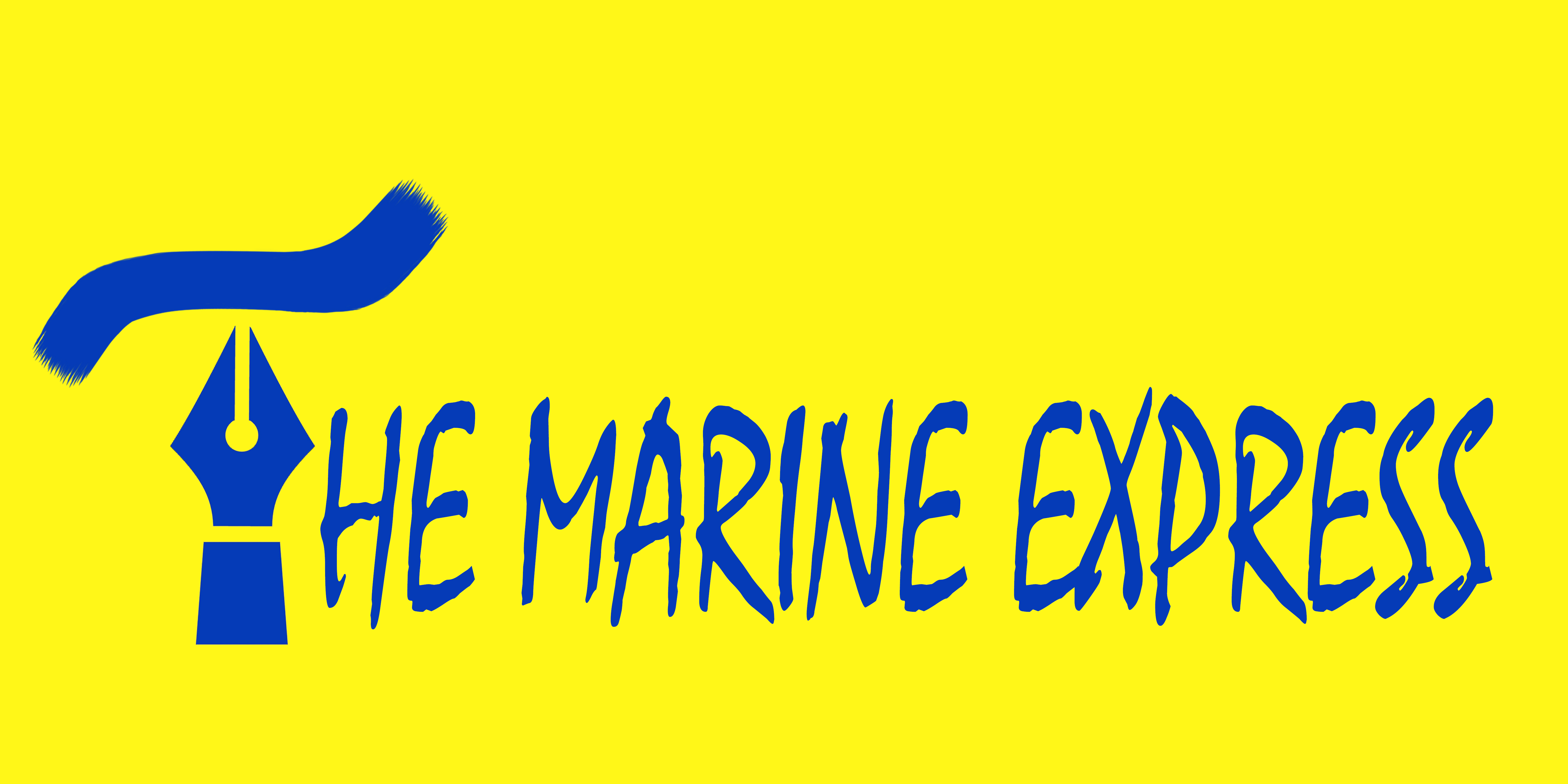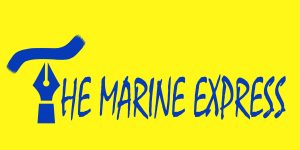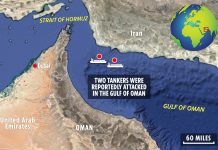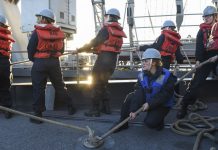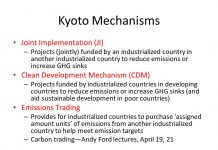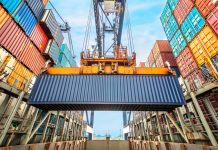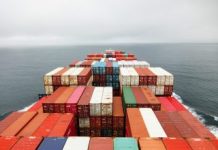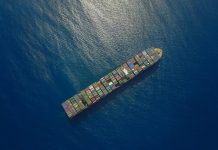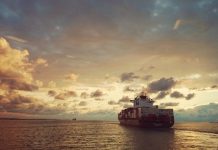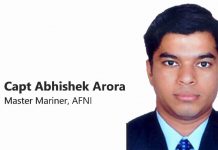Transcript of the conversation-Capt. R.K.P. Sinha, Director of Marine Solutionz- with Trisha Kashyap
Q. Rising from SCI to co-founding Marine Solutionz, moving ahead in the industry for 21 years must not have been a cake walk. Tell us about your story.
In 1996, I passed out from T.S. Chanakya, Nerul. After that I sailed with SCI until I cleared my Master’s ticket. Later I switched to British petroleum to Ishima. Ishima was the time when I and my partner Capt. Sumit Kumar thought about Marine Solutionz. The main idea behind Marine Solutionz was to move ashore. We were determined, even though we had no Godfather. It all happens, when you are full of energy and there is a zeal in you to make a difference in this chaotic market. Luckily, we were both again at China dry dock on two different ships. We were in constant touch with each other at that point of time and that’s how Marine Solutionz came into being. It’s been 22 years as of now, we came back in 2008, and started Marine Solutionz. Coming from a non-business background, we had no idea how to start and run a business. Slowly and steadily we learnt. Soon we got the RPSL license and other things required to come full-fledged in the market.
Right from Day 1, our focus was very clear that if we do a business, we will do it ethically with the licenses in place or we don’t do it. The initial few years are actually the one which makes or breaks the company. It was hard but we started with that belief, and even after 20 years it is well reflected. The image of the company is not based on how you are now, but how your journey has been in the past twenty years. From the very beginning it was important for us to do all the things in the right way. That’s why despite having everything in place, we got our RPSL license in 2009 first and we moved forward. Initial days were of hardship because we were not known in the market and neither of us had even worked as a superintendent. Few people, who knew us, were our seniors but they had little trust on us. We got some leads in the initial years through them and things started to roll.
Q. From being an employee to turning into an entrepreneur and efficaciously setting up takes real call of courage. What motivated you to go along with Marine Solutionz. Did you foresee the scope of success in spite of risk and vulnerabilities involved?
Well, it just happened, you know. It was never planned and executed. The first lead we got was from a senior of mine and he asked me, “Would you like to do this?” and I said “Yes, I am capable of doing anything so why not this?” Then I asked him why is it that you are offering this to me instead of setting up your own business. He said, “I am a good employee but I am not ready to take that much risk.” He was risk aversive. And that’s how it started. Of course, the lead that was given never fructified but then yes, when we set our foot ashore that certainly helped in confidence. Despite not getting that contract we never thought of going back. We thought, good or bad, it may be whatever, but we don’t want to see ourselves as failures in the mirror.
You can lie to others, but every morning when you face the mirror, you don’t want to see a failure, who came ashore tried to do something but things became so difficult that he had to quit. No, I never wanted to buckle down. Probably, you will be able to face the world in five years or ten years but how will you face yourself in the mirror everyday knowing you failed. So this was the guiding force that kept us going and alive. Of course, it was not a burning desire right from childhood that I wanted to do this but it happened once we set our foot ashore and there was no turning back. We could not because we never wanted to see ourselves as failures and that’s what actually pushed us ahead.
The biggest stress we encountered was fundamentally the number of companies that were into the same business i.e. crewing. Our license number was 151 and as of now there are close to 400 RPSL companies. At that time as well there were close to 400 companies into crewing (both RPSL and non RPSL), so huge risk was there, whether we will be able to make it or not. Ten years back then, there were people who used to set up an office in Singapore, hire bunch of top management guys, and with few ships they jump into market. With us it was not the case because we were fresh out of sailing so people hardly used to know us. The biggest challenge was that with so many competitors around, why would anyone give business to us? It was only the commitment part that mobilized us. Our staff worked round the clock be it 10 o’ clock in the night or 4 o’clock in the morning. One phone call of the client and we were with some solution, instead of saying,“It is too late now and my office is closed”. There have been numerous times when we worked at 10 pm or maybe 12 am in the night, done everything ourselves and then sent the crew on-board.
Q. Crew, Technical and Commercial management. What takes a toll on your expertise and what challenges you the most?
See, the most challenging part is getting the right kind of people for the ship. Unless and until you have the right set of people who can do the right kind of work and communicate with the attendants ashore, you will never be able to gauge the gravity of the situation and foresee what needs to be done. So for that the crew that is working on-board, they not only have to be technically sound but they have to be apt enough to communicate what problems can be garnered or generated ashore to be put across the vessel for assistance. This is a major challenge. Of late, we also find that, the right attitude towards work is diminishing. People don’t put in their best, that’s what the general trend is. The perceived notions of discipline, work hours, the cultural balance between home, family and the working environment are changing in the society. The seafarers are picked up from the society, so we will definitely find the same kind of reflection from the crews.
That’s one challenging aspect, the reason being that seafaring has always been a discipline-demanding profession. So, due to the changing scenario, this sometimes becomes an issue. But then yes, nobody knows whether it’s for good or bad but these are the challenges because the pre-conceived notions are going for a toss. Earlier set rules and values do not stand as pillars as of now and this will change further with the social changes. So adapting to these changes is the most challenging thing because after a certain point of time, everybody starts thinking that I had been doing this for so many years and it had worked, so why won’t it work now. But probably when the society changes the rules of engagement changes. The organization and the core values and how they react will change. In fact it needs to change and nobody can stop that change. This is a challenge for most of the companies to channelize these differences and make the most out of the seafarers.
Q. Retention rate of the seafarers has been always reported below par. Crew management must be a challenging task. What measures can be taken to retain the seafarers?
The changes in seafaring is a reflection of the changes in society. The set rules that were there 10/20 years back as to how the seafarers should behave have drastically changed as to how they are behaving now. The attrition rate will take some time to change, especially for countries like India, a big chunk of population is still middle class or lower middle class with very high aspirations towards a career or towards money or towards travelling the world. This will actually propel more and more seafarers to be coming in from Tier 2 cities or probably from villages even and they will be the ones taking the sweet spot. Seafaring as it is not a very easy job. It’s a tough job. People who have been born with golden spoons, very few of them will be able to survive the trauma and toll demanded by the seafaring community.
Q.What is your strategy in tackling the varying mind sets of the crew of different nationalities?
Seafaring at one point of time, probably 20/30 years back, when Indians were going into the tanker trade, it was controlled by British people. The initial apprehension that they had carrying these dangerous cargos was that Indians will not be able to do justice to it. But slowly we learnt and as of today, Indians are the most sought after people to be put on tankers. When today we are looking at the Filipinos, Chinese, Cambodian, or the Burmese people, as Indians we feel like probably they will not be able to do it. But as we learnt from the Europeans and our forefathers, these people will also gradually learn from us and will be good, strong, smart and resilient enough to take the regards of the sea maybe 10 years from now. So this demographic change will remain. Most of us don’t have any qualms about meeting different cultures and we take that into stride. We are compassionate towards other cultures and are very much open towards accepting that there can be a cultural difference. As we go to different ports, we adapt. So do we adapt when someone from some other nationality comes on board. It is a mix of people but that’s not a challenge.
Q.Marine solutionz has been continuously expanding its horizon. Talking about its recent collaboration with X-Press Feeders, what are the services do you provide now and what are your futuristic plans?
We are doing crew management for X- Press Feeders. They do not want containers and are into freelance business into smaller tonnage ships but they serve to the major clients. So we are providing manpower to them. We will stick to them for a longer period of time or rather keep providing the best manpower to the X-Press Feeders in the years to come.
Being Indian, we want to generate more and more employment for Indians, that’s my bit of patriotism or service that I can do for my country. That’s my way of saying Thank you to the motherland. So the trust will remain and then we always look for opportunities wherein we can probably grab few more slots which are traditionally with the Europeans or Filipinos. Grabbing a seat from an Indian to another Indian will not make much of a difference. But if we are able to garner slots from Europeans or other nationalities and bring it to the Indians, that’s where our major focus is.
